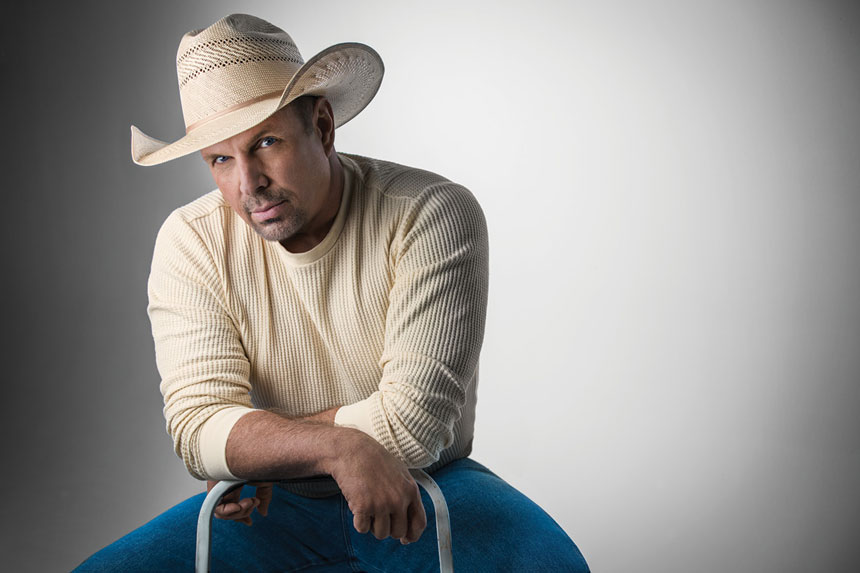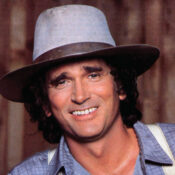Garth Brooks’s cowboy hat and boots are down-home Nashville, but his style is big-time showmanship. His uncanny ability to connect with audiences led him to win every major music award. His songs are deeply personal to his fans, and he has sold out stadiums around the world.
Now at the pinnacle of success, Brooks isn’t slowing down. In the last year, he released his 14th studio album, Time Traveler; performed in St. Peter’s Square at the Vatican; and unleashed a new dream, Friends in Low Places, the Nashville club which he calls “the Chick-Fil-A of honky-tonks.” Oh, and he’s back in residency in Las Vegas.
If Brooks is still putting the pedal to metal on his career, he’s also sharing the good times with “The Queen,” as he affectionately calls his equally successful wife, Trisha Yearwood. He’s more serious than ever about the power of music to bring us together in tough times.
Jeanne Wolf: You’ve crossed every line with your music. What keeps you close to your followers?
Garth Brooks: What never changes in country music is honesty and sincerity, even if there aren’t always happy endings. Sometimes you think there’s nothing in your life that’s special. Then you write a song and people see themselves in it. Music is a bridge between us, a healer and unifier. At first, I was surprised when I got an invitation to the Vatican for the World Meeting on Human Fraternity. Then I realized they’d been studying artists who are just trying through their performances to get people to love one another. And I know that’s my mission.
The beautiful thing about performing live is seeing people sing your songs back to you. Even though they’re singing your words, they’re talking to you. You can see it in their faces, maybe a tear, maybe a smile. It’s more powerful than money.
JW: You enjoy those big crowds from all over in Vegas, and now you dare to take away their phones?
GB: If you come to the Vegas show, it’s not going to be what you’re expecting. If everyone’s videoing, it goes all over the internet, and all of a sudden it’s not new. We take their cellphones so they can’t record it. I want audiences to be surprised. But there’s other benefits. Someone said to me, “Instead of looking at our phones, we started talking to these people at our table who are all strangers, and we exchanged phone numbers.” I said, “That’s how I guess life used to be before technology.”
JW: I’ve seen you with Trisha and I swear you act like honeymooners. What happens when you butt heads?
GB: You have to see yourself through the eyes of who you’re living with. If you stop and think before bitching, maybe you’ll say, “It’s what I’ve done to her a thousand times.” So instead, you go, “How do we fix this?” Sometimes the answers don’t come immediately. But every good answer is worth the time it takes to get there. I have a lot of miles left to go and a lot of lessons to learn, but my book is open and I’m taking notes.
—Jeanne Wolf is the Post’s West Coast editor
This article is featured in the November/December 2024 issue of The Saturday Evening Post. Subscribe to the magazine for more art, inspiring stories, fiction, humor, and features from our archives.
Become a Saturday Evening Post member and enjoy unlimited access. Subscribe now




Comments
I’d be interested in knowing how the cellphones are confiscated for the duration of Garth’s Las Vegas shows, and applaud his doing so for the reasons stated. That aside, it’s annoying and ridiculous at concerts otherwise when you have good seats, or standing space (depending on the venue) to see it big as life in front of you, but purposely choose be looking down to watch it on a small screen the whole time while recording it.